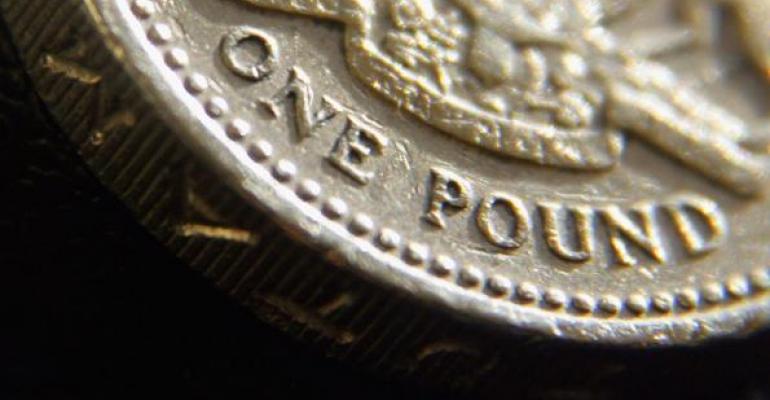LONDON, Oct 7 (Reuters) - Sterling's short-lived 10-percent fall on Friday could not have happened without the lightning-fast computer-driven trading that now dominates the $5-trillion a day foreign exchange market. But a person, not a machine, was probably ultimately the cause.
The Bank of England is still investigating the cause of the sudden price move.
But traders and senior managers at some of the main non-bank market makers said Friday's crash probably stemmed from an error in the parameters of one of the algorithms that more sophisticated players routinely use to execute larger orders.
Electronic platforms developed over years of a technological arms race among banks and other players now account for 95 percent of trading and run on algorithms that can buy or sell a currency, often without human intervention. But people set the parameters for the algorithms.
"If it was an execution algo and someone was working something in it and it winds up being on a best efforts basis in a thin market, then this would be the result," said the head of hedge fund sales at one of the top five currency trading banks.
"What that adds up to is human error," he said. "But once you have a largish volume going through on that basis, it will trigger other computer-driven orders."
Algorithms can trigger buy or sell orders when certain levels are reached, meaning a fall can rapidly accelerate, as happened in January 2015, when the Swiss franc dropped 40 percent against the euro in a matter of minutes.
But that fall was triggered by the announcement of a major change in Swiss central bank policy, whereas Friday's flash crash in sterling had no apparent similar cause.
Those in the industry say the impact of algorithms has been exacerbated by other changes to the FX industry, following huge market-rigging fines levied on banks and a raft of new regulation.
Bankers say such changes have left the market dangerously short of liquidity: when a bank or an asset manager seeks to sell large orders, there could be too few buyers to absorb that order without it moving the market substantially.
Many see that as a hazard of the slow death of risk-taking by people-led voice trading desks at banks, which historically would take and if need be hold millions worth of orders until they could get what they judged was the best price.
The biggest of the "algo" players are a handful of businesses which have emerged from the hedge fund world to rival the banks essentially by working far more efficiently and with far less regulatory baggage and backroom staff.
New York-based Virtu, Citadel Securities and Tower Research Capital along with new European player XTX Markets, London's GSA or Chicago-based Jump Trading, have become both rivals to and partners of banks. There was no indication that any of these firms played any specific role in Friday's price moves.
Where historically voice desks might hold the risk of open currency positions overnight if they had taken orders but could not fulfil them at a good price, new players will now sit on an order for no more than minutes or seconds.
Banks have followed suit and removed the sort of instinctive decision-making by more experienced traders that in the past would have prevented large-scale trading at off-market prices. That means the bank may be less exposed to the risk of holding an open trade, but its clients may potentially face more risk from sudden volatility.
"In the post-GFC (global financial crisis) world we are making individual institutions more resilient, but systemically instability still persists," said Nick Parsons, a currency strategist with National Australia Bank in London.
"We're seeing a very rapid game of pass-the-parcel and machines playing pass-the-parcel can do it much more quickly than 10-year olds at a birthday party."
NEUTRAL
The programmes run by the big new algorithmic foreign exchange trading houses tend not to take a directional view of currencies. Rather they are seeking to make a profit through arbitrage off the relationship in prices of, say, sterling and other assets that trade in some kind of correlation with it.
That might mean working through past data on the link between sterling and certain share prices, and when sterling rises or falls, quickly buying or selling the shares before their prices have had time to catch up.
Crucially, however, such algorithms are all dependent on the reference prices created in trading venues like ICAP-owned EBS or Reuters News owner Thomson Reuters, meaning a run on those prices may trigger a series of responses.
"All the HFTs try to do is find price discrepancies," said another senior sales executive.
"You typically don't make it worse. But if there happen to be two or three execution algos out there with interest to sell the currency, then that will drive it. I absolutely think that this is down to some sort of human error." (writing by Patrick Graham; editing by Peter Graff)


